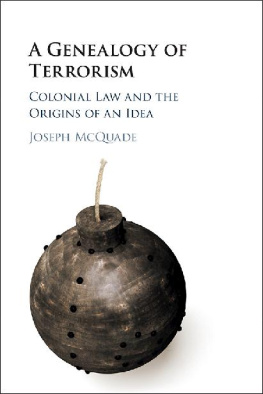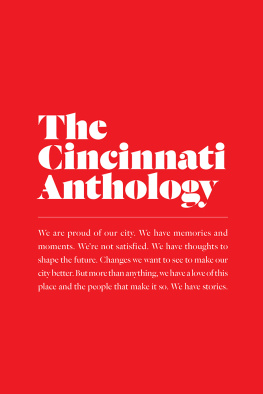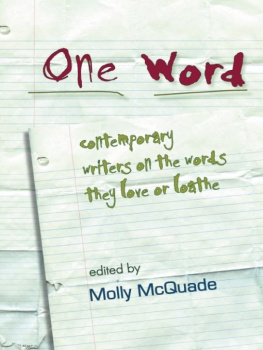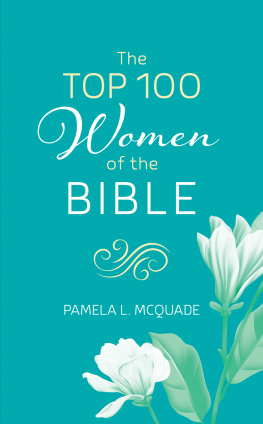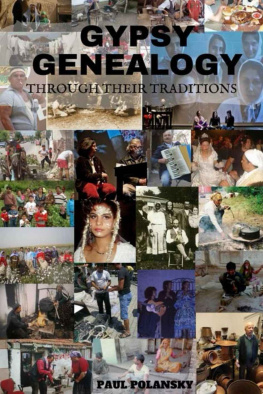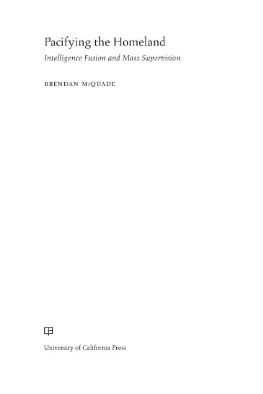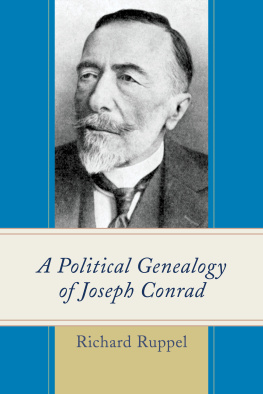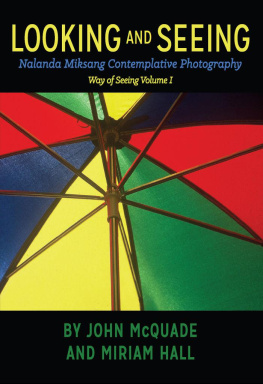A Genealogy of Terrorism
Using India as a case study, Joseph McQuade demonstrates how the modern concept of terrorism was shaped by colonial emergency laws dating back into the nineteenth and early twentieth centuries. Beginning with the thugs, pirates, and fanatics of the nineteenth century, McQuade traces the emerging and novel legal category of the terrorist in early twentieth-century colonial law, ending with an examination of the first international law to target global terrorism in the 1930s. Drawing on a wide range of archival research and a detailed empirical study of evolving emergency laws in British India, he argues that the idea of terrorism emerged as a deliberate strategy by officials seeking to depoliticize the actions of anti-colonial revolutionaries, and that many of the ideas embedded in this colonial legislation continue to shape contemporary understandings of terrorism today.
Joseph McQuade is the RCL Postdoctoral Fellow at the University of Torontos Asian Institute.
A Genealogy of Terrorism
Colonial Law and the Origins of an Idea
Joseph McQuade
University of Toronto
University Printing House, Cambridge CB2 8BS, United Kingdom
One Liberty Plaza, 20th Floor, New York, NY 10006, USA
477 Williamstown Road, Port Melbourne, VIC 3207, Australia
314321, 3rd Floor, Plot 3, Splendor Forum, Jasola District Centre, New Delhi 110025, India
79 Anson Road, #06-04/06, Singapore 079906
Cambridge University Press is part of the University of Cambridge.
It furthers the Universitys mission by disseminating knowledge in the pursuit of education, learning, and research at the highest international levels of excellence.
www.cambridge.org
Information on this title: www.cambridge.org/9781108842150
DOI: 10.1017/9781108896238
Joseph McQuade 2021
This publication is in copyright. Subject to statutory exception and to the provisions of relevant collective licensing agreements, no reproduction of any part may take place without the written permission of Cambridge University Press.
First published 2021
A catalogue record for this publication is available from the British Library.
ISBN 978-1-108-84215-0 Hardback
Cambridge University Press has no responsibility for the persistence or accuracy of URLs for external or third-party internet websites referred to in this publication and does not guarantee that any content on such websites is, or will remain, accurate or appropriate.
For Emily
It is a principle of the law of nations, recognized I believe by every civilized people, that assassins by profession shall find in no country a sanctuary, but shall every where be delivered up to the Sovereign who reclaims them and in whose dominions they have perpetrated their crimes; and as the crimes of these assassins are never confined to the country in which they reside, and as every country in India must now be considered as under the protection of the Supreme Government in some relation or other, that Government very properly undertook the duty which seemed to be imposed upon it by the laws of humanity and of nations, and determined to reclaim them from every State in which they might seek shelter.
W. H. Sleeman, Ramaseeana; or A vocabulary of the peculiar language used by the thugs (Calcutta: G. H. Huttman, Military Orphan Press, 1836), pp. 489.
Authority is, it seems, at one all the world over, and we must recognize that there is now no longer the least illogical loophole of escape for a fleeing man on this earth or in its waters; it is merely a question of which uniform shall arrest him. In old days there was always some leakage, some chunk for escape between the machineries of different nationalities. But the nets are drawn closer now daily the elaborate international system for maintaining the status quo becomes more perfect, and from it there is no appeal. The fugitive assassin, or patriot, avatar or that weird monster the anarchist of the newspapers, whatever he may be can find no corner of the globe to shelter him, and the only doubt is under which precise code of regulations he shall be judged, punished, and put away.
Josiah Wedgwood, Essays and Adventures of a Labour M.P. (London: George Allen & Unwin Ltd, 1924), p. 153
The search is underway for those who are behind these evil acts. Ive directed the full resources of our intelligence and law enforcement communities to find those responsible and to bring them to justice. We will make no distinction between the terrorists who committed these acts and those who harbor them. America and our friends and allies join with all those who want peace and security in the world, and we stand together to win the war against terrorism.
George W. Bush, Statement by the President in his address to the nation, 11 September 2001
Contents
Figures
Acknowledgements
Throughout the process of researching and writing this book, I have accumulated a wide range of debts, both intellectual and personal. This project has evolved over the better part of a tumultuous decade, and it would be impossible to credit everyone who helped shape my ideas along the way. Needless to say, any errors or omissions are my own.
During my time at Cambridge University, where the scaffolding of this project took shape, Tim Harper was a generous and insightful supervisor who improved my work in numerous ways. My PhD examiners, Clare Anderson and Saul Dubow, provided rigorous feedback that was instrumental in helping me adapt a doctoral dissertation into a book. I would also like to thank my advisor, Alison Bashford, for helping me think through the international dimensions of the project, and the anonymous reviewers at Cambridge University Press for helping me to better understand my own arguments. Shruti Kapila was a great help in the early iterations of this work and provided incisive commentary that steered the research in productive directions. Special thanks are owed to Kim Wagner for reading the manuscript at multiple stages and providing patient and frank advice that has undoubtedly made this a far better book than it would otherwise have been.
For helpful feedback on earlier drafts of this work, I would like to thank Sandra den Otter, Christopher Andrew, Susan Pedersen, Surabhi Ranganathan, Devyani Gupta, and Upendra Baxi. Amitava Chowdhury has seen this research develop since its inception and has been an irreplaceable element in my intellectual development over the past eight years. If it wasnt for his encouragement, faith, and friendship at various stages throughout this process, this book might never have been completed. I am also thankful to the participants of numerous workshops, conferences, and conversations who provided advice and inspiration that helped strengthen the final product, including Nonica Datta, Deanna Heath, Lauren Benton, Durba Ghosh, Bhavani Raman, Mark Condos, Katherine Bruce-Lockhart, Ishan Mukherjee, and Partha Shil, as well as Christopher Bayly and Keith Jeffery, both of whom are sadly no longer with us. I would also like to thank Michael Sugarman for the countless ideas shared over coffee and cardamom buns and Sophie-Jung Kim for always being a provocative interlocutor and confidante. As a sounding board, advisor, travel companion, and roommate, Alastair McClure is unmatched. Although there is no space to mention them all by name, a wide-ranging network of friends, teachers, and colleagues have enriched this experience in more ways than I can count.



